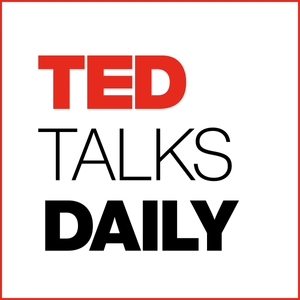![Practical Stoicism - The Trailer [Updated August 2024]](https://storage.googleapis.com/goodpods-images-bucket/episode_images/2a8c7167c63c9e0183cdb61f65c9f910b11f9169b40aa3bb4fd0dff0c9d3a2cc.avif)
The Trailer [Updated August 2024]
08/13/24 • 6 min
4 Listeners
Welcome to Season 2 of Practical Stoicism! When I started this podcast in January 2022, I knew very little about Stoicism. Fast forward to today, and the podcast now averages around 4 million plays a year. Along the way, I've written over half a million words on Stoicism, co-authored a book, and gained recognition as a Stoic philosopher within the academic community.
With all this growth and learning, I realized that some of the early episodes of this podcast may not be as accurate or insightful as I'd like them to be today. Rather than delete them, I've moved all 233 of those episodes into Season 1, creating a clear division between where I started and where we’re headed now.
So, what can you expect from Season 2?
I've learned that most of you appreciate a mix of ancient wisdom straight from the source, coupled with informed interpretations on how to apply that wisdom in contemporary life. You’re not necessarily strict Stoics, but rather individuals from diverse backgrounds looking for practical insights to incorporate into your own life philosophies.
In Season 2, I'll continue to provide practical Stoic advice while also diving deeper into the ancient theories and how they can be applied today. The podcast will remain a place for practical guidance, while my weekly digital print publication at stoicismpod.com/print will explore more advanced Stoic concepts for those who want to go further.
We’re starting this new season by revisiting the Meditations of Marcus Aurelius, beginning with Book 2. This is a reboot, and I’m bringing all the knowledge I’ve gained since the podcast began.
I hope you enjoy this refreshed journey into Stoicism. Thanks for being here.
--
Go ad-free : https://stoicismpod.com/members
Follow the print publication : https://stoicismpod.com/print
Take the free course : https://understandingstoicism.com
Order my book : https://stoicismpod.com/book
Learn more about your ad choices. Visit megaphone.fm/adchoices
Welcome to Season 2 of Practical Stoicism! When I started this podcast in January 2022, I knew very little about Stoicism. Fast forward to today, and the podcast now averages around 4 million plays a year. Along the way, I've written over half a million words on Stoicism, co-authored a book, and gained recognition as a Stoic philosopher within the academic community.
With all this growth and learning, I realized that some of the early episodes of this podcast may not be as accurate or insightful as I'd like them to be today. Rather than delete them, I've moved all 233 of those episodes into Season 1, creating a clear division between where I started and where we’re headed now.
So, what can you expect from Season 2?
I've learned that most of you appreciate a mix of ancient wisdom straight from the source, coupled with informed interpretations on how to apply that wisdom in contemporary life. You’re not necessarily strict Stoics, but rather individuals from diverse backgrounds looking for practical insights to incorporate into your own life philosophies.
In Season 2, I'll continue to provide practical Stoic advice while also diving deeper into the ancient theories and how they can be applied today. The podcast will remain a place for practical guidance, while my weekly digital print publication at stoicismpod.com/print will explore more advanced Stoic concepts for those who want to go further.
We’re starting this new season by revisiting the Meditations of Marcus Aurelius, beginning with Book 2. This is a reboot, and I’m bringing all the knowledge I’ve gained since the podcast began.
I hope you enjoy this refreshed journey into Stoicism. Thanks for being here.
--
Go ad-free : https://stoicismpod.com/members
Follow the print publication : https://stoicismpod.com/print
Take the free course : https://understandingstoicism.com
Order my book : https://stoicismpod.com/book
Learn more about your ad choices. Visit megaphone.fm/adchoices
Previous Episode

The Cardinal Identity Of All Stoics
In this episode, I delve into the concept of identity from a Stoic perspective, prompted by recent thoughts and experiences. I discuss how we often identify with various subordinate identities, such as our gender, profession, nationality, or personal preferences, and how these can sometimes overshadow our true identity.
I propose that, according to Stoic philosophy, we all share a single Cardinal Identity: Human Citizen of the Cosmos. This identity transcends all subordinate identities and unites us as part of a greater whole. I explore the potential pitfalls of over-identifying with our subordinate identities, which can lead to division and a narrow view of ourselves.
Through this discussion, I aim to shift the focus from these subordinate identities to our shared Cardinal Identity. By recognizing and embracing this Cardinal Identity, we can better fulfill our roles and contribute to the greater good of the cosmopolis.
Join me as I explore how understanding our true identity can help us live more virtuous and fulfilling lives, and how we can balance our various roles and characteristics without losing sight of our shared humanity.
--
Share your thoughts : https://stoicismpod.com/ai
Become a Patron : https://stoicismpod.com/members
Download the Stoicism260 app : https://stoicism260.com
Subscribe to the Newsletter : https://practicalstoicism.net
Enroll in the course : https://understandingstoicism.com
Order my book : https://stoicismpod.com/book
Join the Society of Stoics : https://societyofstoics.org
Learn more about your ad choices. Visit megaphone.fm/adchoices
Next Episode

You Might Also Like: The New Yorker Radio Hour
Introducing Israel’s Other Intractable Conflict (Part 2) from The New Yorker Radio Hour.
Follow the show: The New Yorker Radio Hour
Israel has occupied the West Bank of the Jordan River since 1967, after the third Arab-Israeli war, and ever since Israelis have settled on more and more of this contested land. Violence by armed settlers against their Palestinian neighbors has increased dramatically in recent years, as a far-right government came to dominate Israeli politics. Unless things change, the American journalist Nathan Thrall tells David Remnick, the future for Palestinians is “not unlike that of the Native Americans.” Thrall won a Pulitzer Prize for his book “A Day in the Life of Abed Salama,” which uses one isolated incident—a road accident in the West Bank—to illustrate the ways in which life under occupation has become nearly unlivable for Palestinians. On July 19th, the United Nations’ International Court of Justice issued an advisory ruling that the occupation violates international law. While the world’s attention is focussed on the devastating war in Gaza, and the escalating conflict between Israel and Hezbollah, the occupation of the West Bank remains a fundamental challenge for any peaceful resolution.
Remnick also speaks with Palestinian lawyer and author Raja Shehadeh, a longtime advocate for peace with Israel who lives in Ramallah. Palestinians “are, in a sense, living under a different law than the law of the settlements. And so the settlers are going to be part of Israel, and the laws of Israel apply to them—and that's annexation—but not to us. There will be two communities living side by side, each subject to different laws, and that's entirely apartheid.” Shehadeh’s new book is titled, “What Does Israel Fear from Palestine?” He argues that, as much as a concern for their security, many Israelis refuse to contemplate a two-state solution because recognizing Palestinians’ claims to nationhood challenges Israel’s national story. Although Thrall believes that any false hope about an end to the conflict is damaging, he acknowledges that U.S. sanctions on violent settlers is a meaningful step, and Shehadeh sees the I.C.J.’s ruling as a new degree of global pressure. “That could bring about the end of the era of impunity of Israel,” Shehadeh believes. “And that can make a big difference.”
Plus, for the fiftieth anniversary of Philippe Petit’s famous high-wire walk between the Twin Towers of the old World Trade Center—a quarter mile up in the air—The New Yorker’s Parul Sehgal reads an excerpt from Gwen Kinkead’s Profile of Petit titled “Alone and in Control.”
DISCLAIMER: Please note, this is an independent podcast episode not affiliated with, endorsed by, or produced in conjunction with the host podcast feed or any of its media entities. The views and opinions expressed in this episode are solely those of the creators and guests. For any concerns, please reach out to [email protected].
If you like this episode you’ll love
Episode Comments
Generate a badge
Get a badge for your website that links back to this episode
<a href="https://goodpods.com/podcasts/practical-stoicism-193894/the-trailer-updated-august-2024-18697436"> <img src="https://storage.googleapis.com/goodpods-images-bucket/badges/generic-badge-1.svg" alt="listen to the trailer [updated august 2024] on goodpods" style="width: 225px" /> </a>
Copy




